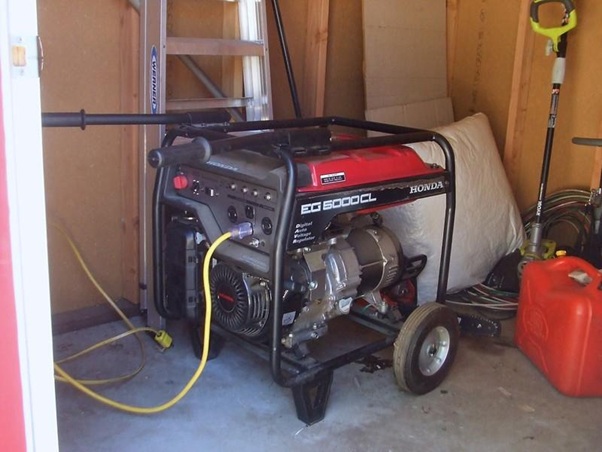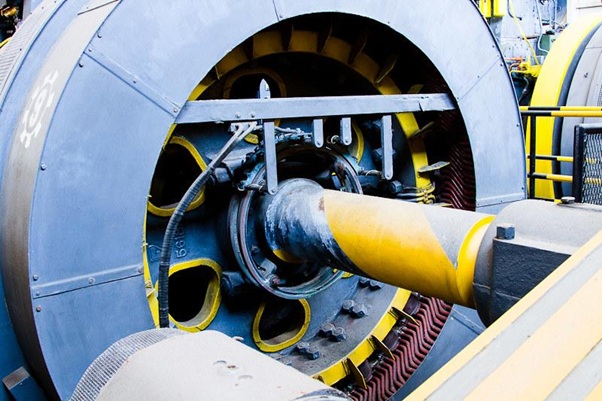There are many different kinds of business for which a generator is necessary, including construction companies and hospitals. As well as being used for commercial needs, many people have a generator in their home to act as a back-up power source in blackouts or for running heavy duty tools and appliances. There is a huge range of different generators with different performance points and power capabilities which can suit every need. With so many choices, however, it can be difficult to know which is the best generator for your home or business. There are many things to take into account to make sure that you do not waste money on a generator that does not deliver what you need it to. With the new co2 cell technology we can use generators with reduced carbon footprint.
To help you make an informed decision, here are 6 considerations to make when choosing the right generator for you.
1. What will you be using it for?
This is the most important consideration you need to make because different needs require different generators. There are two main types of generator, standby generators and portable generators, and the right choice for you will depend on how you intend to use it. The folks at Krugerpower.com.au told us that for your home, you should choose a standby generator. Various standby generators run off gasoline or natural gas, but diesel standby generators have much lower fuel consumption and a longer engine life and are therefore significantly more cost effective. When buying a standby generator it is important to note that they require professional installation as well as a permit in many cases. Portable generators are used to deliver limited power, such as during storms or blackouts or on construction and camping sites. There is no installation required and you do not need a permit to own or operate a portable generator.
2. How many watts do you need?
The second important consideration when picking a home generator is making sure you choose one that fulfills your wattage requirements. Standby generators will generally run between 7,000 and 20,000 watts. They have high outputs so that they can provide 24/7 power to homes or hospitals during power outages or emergencies. Portable generators can run anywhere between 1,000-10,000 watts so if you are buying a portable generator, it is vital to choose one that is powerful enough for your needs. There are websites where you can calculate how many watts required for the appliances you intend to hook up to your generator. An RV refrigerator requires 180 running watts, an electric grill requires 1,650 watts, and an inflator pump requires 743 watts, so if you plan to take these on your camping trip you will need a portable generator that runs at least 3,000 watts.
3. What are your portability needs?
Portable generators are often used on construction sites where there is no access to a grounded power source. On big sites they will have to be carried from one place to another, so it is important to consider your portability needs. For construction companies a lighter generator with wheels and a handle is better so that tradesmen can move it easily. If you are choosing a portable generator to take camping, it will probably not be necessary to move the generator too much once your campsite is set up, so portability is less of an issue.
4. What is your required run time?
Run time is not a consideration when buying a standby generator as they are hooked up to an established source of fuel and so can run continuously, but when buying a portable generator the run time should be a major factor in your decision. Essentially the larger the tank, the longer the run time, but some generators are specially designed to increase run time. The run time will be affected by how many appliances you are running from the generator as more fuel is needed to provide the required watts. As noted above, diesel generators tend to have a longer run time than gasoline generators, so are usually a good choice if you need a generator to provide power without needing to be refueled too often.
5. What is your budget?
Generator prices vary widely depending on the power capacity, run time, and other features. Standby generators are generally far more expensive than portable generators with prices ranging from $2,000 to $40,000 for the most powerful models. Portable generator prices range from $1,000 to $3,000 depending on wattage capabilities, run time and special features like portability. Make sure to do your homework on different models with the same price point to see if there are any major differences in technical specifications and capabilities. It is also worth looking online for user reviews to see what generators other people are using who have similar power needs to yours.
6. What additional items or features does the generator come with?
There are many additional items and features that you should consider when choosing a generator. As noted, standby generators require professional installation and a permit, so it is important to know if these are included in the price. All generators need regular services to make sure they are running correctly and to repair or replace any broken parts, so find out if the generator comes with a warranty and exactly what the warranty covers. Some generator packages may include fuel, casing, or detachable wheels and handles. All these extras can add up so if they already come included, they can save you a significant amount of money.
There is a generator to suit every need and whether it is needed to run power tools on a construction site or the grill and A/C on a camping trip, it is very important to do your homework and make sure you choose the right generator for you. For home use, a standby generator can be a great investment, whilst for other needs, a reliable portable generator with a good run time is your best bet. Take into consideration the points laid out in this article and it will help you to make an informed decision when choosing a generator.

